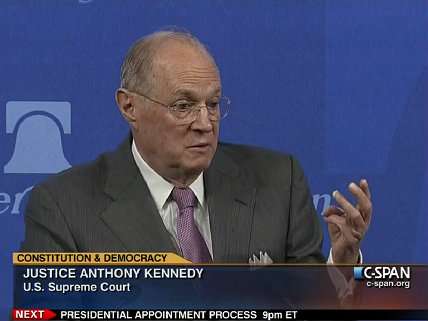Supreme Court Agrees to Hear New Affirmative Action Case
Fisher v. University of Texas at Austin is headed back to SCOTUS.

The constitutional debate over affirmative action is headed back to the U.S. Supreme Court. Earlier today the justices agreed to hear oral arguments next term in Fisher v. University of Texas at Austin. At issue is whether that public university's use of race in determining undergraduate admissions violates the Equal Protection Clause of the 14th Amendment.
Sound familiar? That's because the Supreme Court has already heard this case once before. In a June 2013 opinion that surprised most legal observers, the Court refused to rule on the merits of the university's plan. Instead, the majority opinion of Justice Anthony Kennedy sent the case back down to the lower courts for further hearings.
Although Kennedy maintained that the lower courts erred "by deferring to the University's good faith in its use of racial classifications," he maintained that "in fairness to the litigants and the courts that heard the case," Fisher should "be remanded so that the admissions process can be considered and judged under a correct analysis." What is the correct analysis he had in mind? As Kennedy explained, in cases where the government employs racial classifications, the courts must treat such actions as "inherently suspect" and subject them to the most searching form of judicial review available, an approach known as "strict scrutiny." Because the U.S. Court of Appeals for the 5th Circuit failed to apply that analysis in Fisher I, Kennedy ordered the 5th Circuit to correctly apply it in Fisher II.
A few months later the 5th Circuit came back with its Fisher II decision. Once again, the 5th Circuit upheld the use of race in undergraduate admissions by the University of Texas at Austin.
Sometime next fall, the Supreme Court will review that decision. This time around I expect we'll receive a clear ruling on whether or not UT's affirmative action policy can survive strict scrutiny under the Constitution.


Show Comments (92)